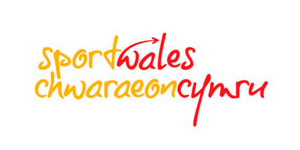Staggering impact of investment in sport evidenced by Sport Wales research
Sport Wales research into the Social Return on Investment (SROI) of Sport in Wales has evidenced the staggering impact and value of sport and leisure in the nation.
The report measures the value of sports participation and volunteering and the net costs, or inputs, of providing opportunities for engagement, therefore calculating the social return on investment.
Having published an SROI of sport in Wales in 2016/17, Sport Wales deliberately narrowed the scope of this study by only including those outcomes that could be robustly evidenced, to maintain a high level of rigour.
For example, despite participants in the study linking sports participation to reductions in crime and increased educational performance, some such outcomes have been excluded due to insufficient empirical evidence. As a result, the findings presented by Sport Wales are likely to be a conservative assessment for sport in Wales.
Having said that, the findings are nonetheless staggering.
Health Outcomes
The principal benefit identified by participants in the research were health outcomes, including the prevention and the treatment of ill health.
Only considering health conditions for which there is strong empirical evidence demonstrating the link between sport and physical activity and improved physical and mental health, the report suggests that sport provides a total cost saving of £679m.
These health conditions were:
- CHD
- Stroke
- Type 2 Diabetes
- Breast Cancer
- Colon Cancer
- Hip Fractures
- Back Pain
- Dementia
- Depression
22% (£151m) of this figure is attributed to direct healthcare cost savings, compared to 78% (£528m) related to other indirect health costs.
When taking into account the cost of sport on health, for example A&E admissions as a result of injuries, the net benefit of sports participation in Wales on Health Services was calculated as £621m.
Wellbeing and Social Capital Outcomes
An important outcome of engagement was also highlighted as its social and psychological benefits.
Participants in the research highlighted that, socially, participation in sport and physical activity enabled people to meet others, feel a sense of belonging with a group, and develop feelings of community.
In terms of subjective wellbeing, participants described outcomes such as feelings of belonging and community, positive feelings about oneself, feeling happier, developing confidence, improved social, communication and leadership skills, increased self-esteem, self-efficacy and self-belief, feeling worthwhile, and feeling cared about.
These outcomes led to other benefits such as crime prevention, increased productivity in education and work, and increased aspiration about future prospects also being identified by participants.
To calculate a tangible output, the research used the Wellbeing Valuation Approach (WVA) to derive monetary values for subjective wellbeing and social capital.
In all, the contribution of sport to subjective well-being in Wales was £2.06bn. The overall contribution of sport to enhanced social capital in Wales was £2.87bn.
Welsh Sports Association (WSA) member The Outdoor Partnership was showcased in the Sport Wales report for their Opening Doors to the Outdoors programme, a 12-week walking and climbing intervention aimed at inactive individuals who experience low mental wellbeing, in North Wales.
Calculations by the Social Value Hub at the Centre for Health Economics and Medicines Evaluation at Bangor University estimated that, for every £1 put in, the programme generated up to £5.36 of social value for stakeholders with interviews indicating better mental wellbeing, more social trust and better overall health.
Later evaluation looked at the social value created through the organisation’s various programmes in Mid and South Wales, and found that, for each £1 invested, £7.12 of value is created.
Replacement Value of Volunteers
In addition to the health, wellbeing, and social benefits experienced by those who participate in sport, the research also outlines the impact of volunteers in the sector, and specifically the non-market value for organisations which utilise them.
Using the replacement cost of volunteers as a proxy to represent a monetary value, it was calculated that the value output of volunteers in sport is an estimated £430m.
Social Return on Investment (SROI) of Sport in Wales
It is important to note that there are inputs that make activities possible across Wales, consisting of financial and non-financial factors.
The Sport Wales report clarifies that households contribute over 55%, the voluntary sector nearly 32%, and the public sector just over 12% of total inputs equating to approximately £1.35bn.
This figure, however, is significantly lower than the return of sport and physical activity in Wales, with a total value of all outcomes of £5.98bn.
The largest contribution to this figure is generated by social capital (48%), followed by subjective wellbeing (34%), and subsequently health (10.4%).
Taking everything in the Sport Wales report into account, the net social value of sport in Wales is calculated at £4.63bn, giving an SROI ratio of 4.44. In conclusion, this means that for every £1 invested in sport in Wales in 2021/22, £4.44 worth of social impact are generated.
The Sport Wales website states:
“This study demonstrates that sport in Wales generates considerable value to society across several wellbeing goals including A healthier Wales, A Wales of cohesive communities and A Wales of vibrant culture and thriving Welsh language. The SROI also demonstrates that the value generated by sport in Wales is greater than the cost of providing those opportunities by some margin, suggesting that investment in the sector not only contributes to the wellbeing of individuals and society, but it is also good for the economy.”
Find the full findings of the report here.
Working collaboratively with Members, strategic partners, and Welsh Government, the WSA continues to state the case for sufficient investment in sport in Wales.



















